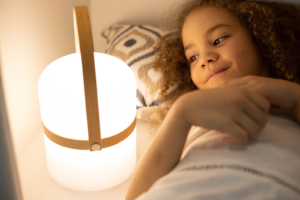Seasonal Affective Disorder Treatment
Winter is here, at least in the Northern Hemisphere! With bright winter decorations and a drink of hot chocolate, the world may seem warmer. However, do you feel jolly, or do you feel dark and cold like the weather? If you are feeling down, it could be because of the Seasonal Affective Disorder (SAD). According to the National Institute of Mental Health, SAD is a type of depression that affects mood and behavioral change during seasonal transitions, especially in autumn and winter.
SAD Symptoms
Below are common symptoms of SAD:
- Depressed most of the day
- Loss of interest in activities
- Changes in appetite or weight
- Sleeping problems
- Sluggishness or agitation
- Low energy
- Hopelessness or feeling worthless
- Difficulty in focusing
- Frequent thoughts of death or suicide
Ways to Treat Seasonal Affective Disorder
Cognitive Behavioral Therapy (CBT)
According to research, psychological therapies can prevent SAD (Forneris et al., 2019). One of the most common methods of psychological counseling that can be utilized to prevent or reduce the symptoms of SAD is called Cognitive Behavioral Therapy (CBT). Some forms of CBT interventions commonly include:
- Cognitive restructuring & Thought records
- Activity scheduling & positive events logging
- Relaxation techniques & mindfulness
- Sleep hygiene techniques
- Daily mood logs
Light Therapy
Another type of therapy that works well to overcome SAD is Light Therapy. One of the main reasons why many people suffer from SAD during winter is due to the reduced sunlight. So if you feel down, you could change the lighting at your place or go outside to be more exposed to sunlight as much as possible. It may help you to feel better. However, due to the lack of natural sunlight in winter, a special type of light therapy boxes, or sun lamps, are used to do light therapy that mimics natural sunlight. When using the sun lamps, be careful to not directly look at the light or be too close to it, or it may lead to certain side effects, such as headaches, eyestrains, or nauseas.
Comparison between CBT versus Light Therapy
When comparing between CBT and light therapy, both therapies were equally effective in improving SAD. Therefore, using both therapy methods would be recommended. In terms of speed and lasting effects, light therapy seemed to have a slightly faster improvement than CBT towards SAD, but a long-term study showed that using CBT to patients with SAD has a longer lasting effect (National Institute of Mental Health).
Overall, it is common to feel down during autumn or winter for many people. But SAD can be overcome by therapies, such as CBT or light therapy. When spring comes, the symptoms of SAD usually goes down once sunlight comes back. However, if you cannot wait for the seasons to change and sunlight to come back, it is recommended to seek a therapist who can do CBT to prevent or reduce the symptoms of SAD.
Professional Help for Seasonal Affective Disorder
At Seoul Counseling Center, we have many experienced and competent therapists who can perform CBT. If you would like to make an appointment, please book an appointment to start the process of your first session, or call us at 02-542-5553.



Recent Posts
Anxiety Depression
Eye Movement Desensitization and Reprocessing Therapy | EMDR Therapy
Seoul Counseling Center offers evidence-based therapeutic treatment with Eye Movement Desensitization and Reprocessing therapy (EMDR Therapy).
Apr
General
Cognitive Behavioral Therapy in Korea
Seoul Counseling Center offers in-person and online Cognitive Behavioral Therapy (CBT) to identify negative thoughts and unwanted behavioral patterns, changing [...]
Jan
General
Nurturing Mental Well-being into the New Year
As we embrace the New Year, it’s a good time to reflect on our mental health and well-being. Instead of [...]
Dec
General
Navigating Your Emotionally Focused Therapy (EFT) Journey: What to Learn, Expect, and Take Away
Seoul Counseling Center offers Emotionally Focused Therapy (EFT), which is a powerful, research-backed approach to fostering stronger emotional connections and [...]
Dec